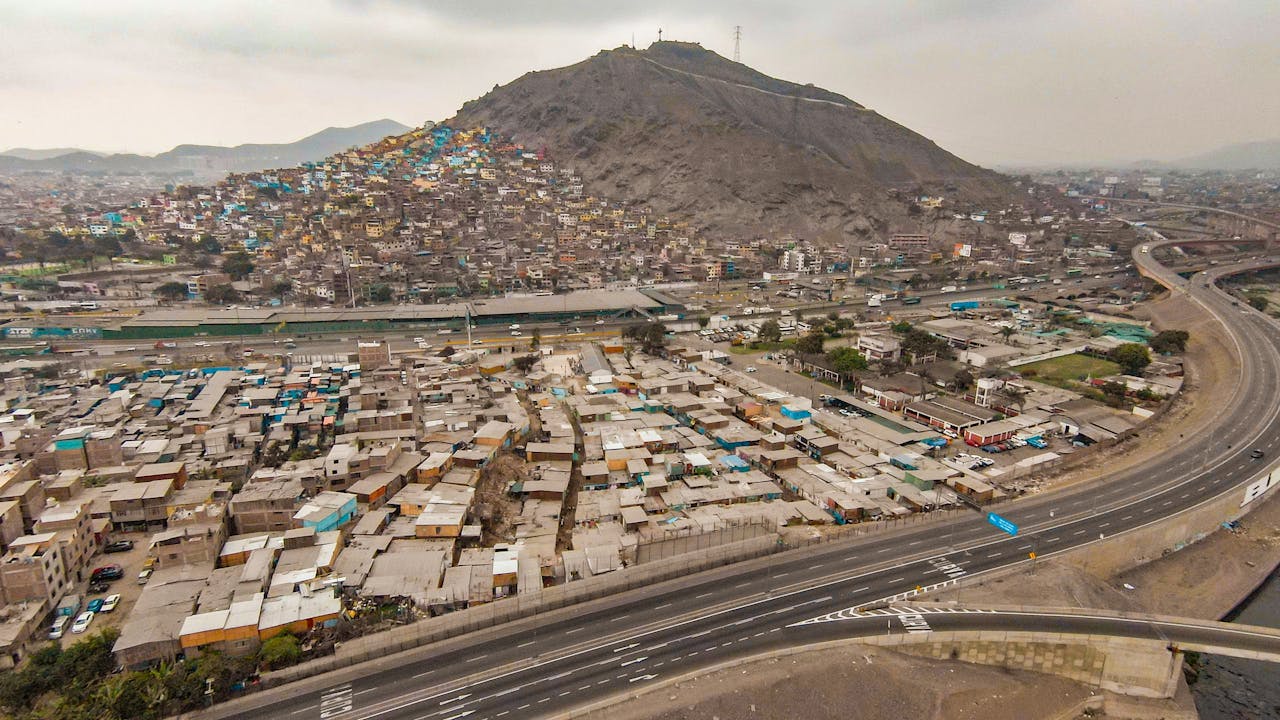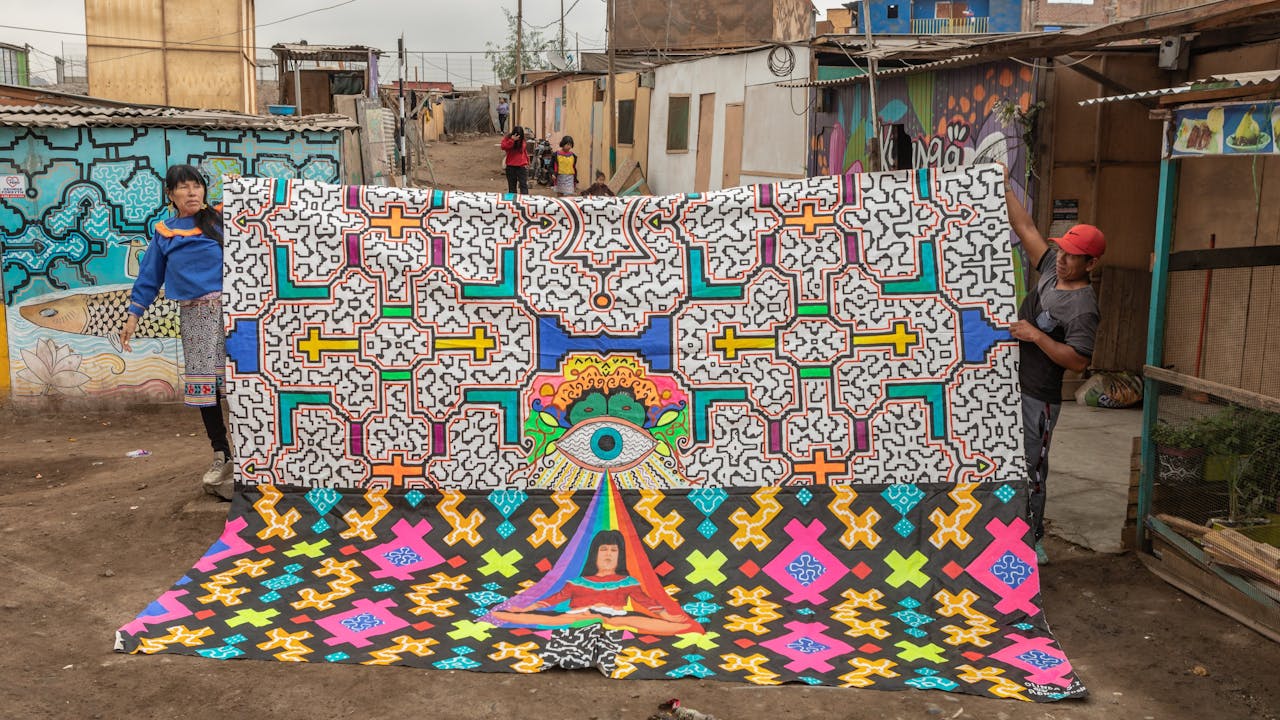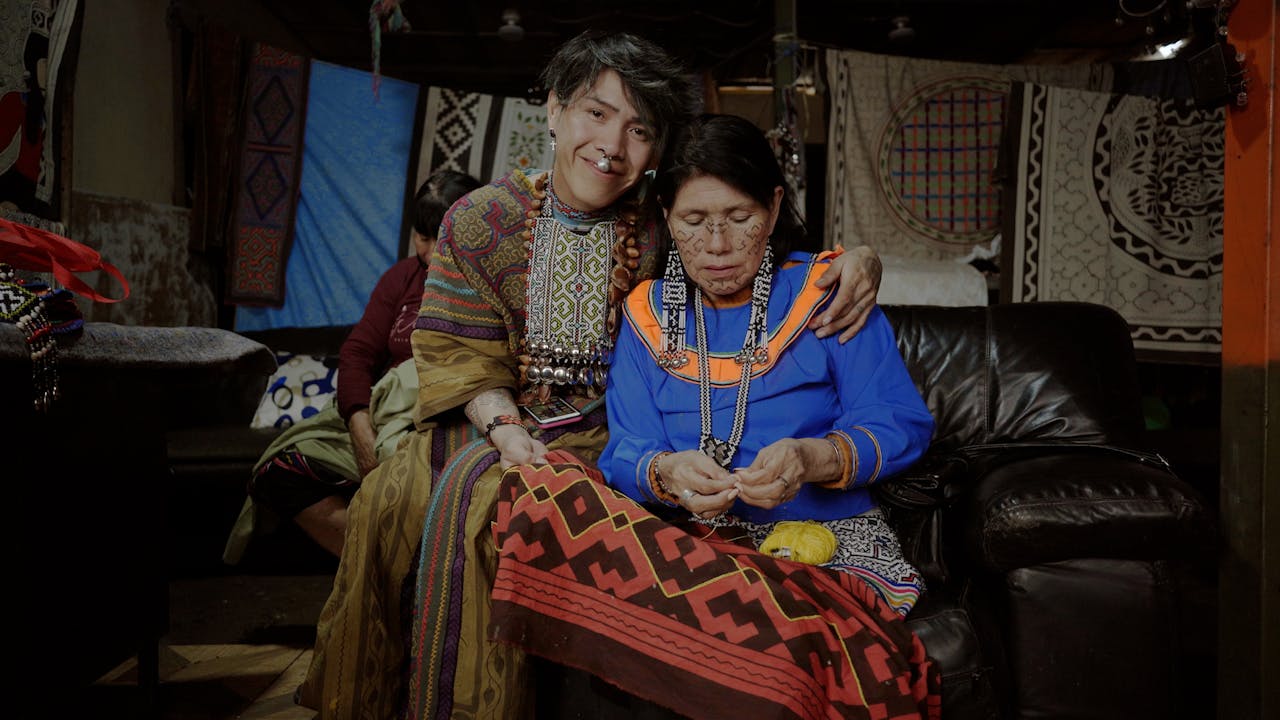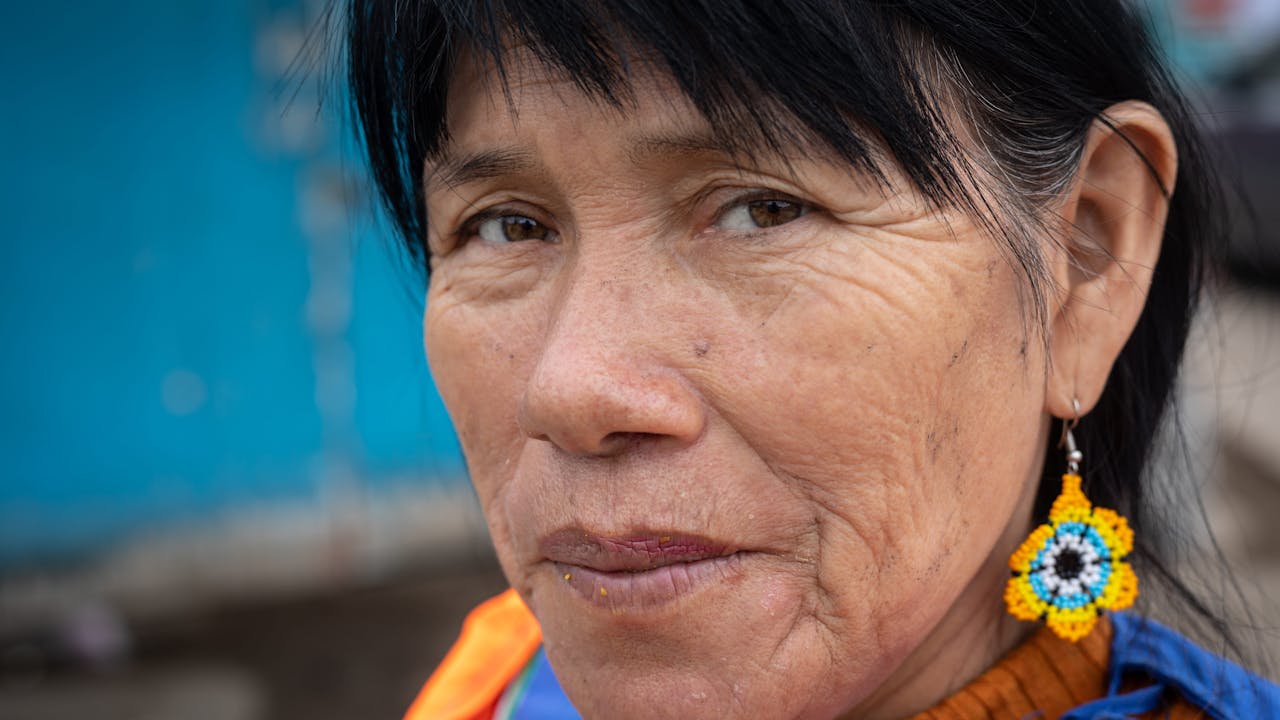Sometimes people look at us and think that because we are indigenous we know nothing, and that we are going to do what they say. It's not like that. We have rights and we have to defend them as indigenous people who have emigrated to the capital.
My name is Olinda Silvano. In my native Shipibo language my name is Reshin Jabe. I am from an indigenous Shipibo-Konibo community called Paoyhan in the lower Ucayali region of Peru, which is part of the Amazon rainforest.
I am an artist, a muralist, an activist, and a painter. I give lectures, tell stories, and teach workshops. I am a singer as well. I am a woman of a thousand trades.
I came here to the capital city of Lima over 20 years ago in search of opportunities, to make my cultural identity visible and to make sure that my children can study. Education is the best inheritance we can give.
We have been through a lot. In the early years of living in the city, my father was president of our community of Cantagallo. One day, at 5:00 a.m., there was a knock at the door. My father thought it was someone who needed his help. But when he went outside a man hit him with a wooden bar. My sister tried to intervene but he had already been hit several times and my father was in a bad state. I didn’t know what violence was. I thought my father was going to live and that it was going to pass. It didn’t pass. He got sick. He travelled to the jungle and never returned.
Before he left, my father said to me: “Take care of Cantagallo. I have opened the way and you will make the way wider. I will sacrifice my life for the community, so that you can live here, my children and grandchildren.”
There was a time of arguments when people threw stones at us. Our children had to hide under the bed. Until one day we faced them with arrows, and from that moment on they left us alone.
Then in 2016, the entire community was set on fire. Not just a part of it, not just one house, everything burned down.
Like my father before me, I am now also a leader in the Shipibo-Konibo community in Cantagallo, representing an association of 238 families.
We have been trying to get a property title to the land but we have been told to get out, that it is contaminated land. Right now, we are doing our research, and the fight continues.
When it’s campaign season, Cantagallo is filled with politicians but once they get elected, they forget all about Cantagallo. "What Cantagallo?" We feel used. It shouldn't be like that.

There are around 2000 Shipibo-Konibo people in our community of Cantagallo.
© A. Aguilar ILO/OITOne of the issues we face is lack of running water. It comes and goes. Electricity is the same.
Here in the capital, we don't have farms or our cassava and plantains. We don’t have a river full of fish. Everything is about money. For everything you eat, you need money. So, we make a living with our art, our Kené designs, which is the art form of the Shipibo-Konibo people.

A Kené design I painted on a large piece of fabric. My art is the energy of the Shipibo people, it is my identity, my living culture, my custom, and what I have learned from medicinal plants.
© A. Aguilar ILO/OITI want to empower indigenous women - and men as well - to give them opportunities so that they don't say, "I'm not valuable. I am nothing." No, we are all valuable, it is up to us to find our courage and our gift.
Give a person a piece of canvas and some paint, and that person is going to get ahead and support their family. It’s worse not to give them anything and just criticize. I look for every opportunity.
Since I became a leader, we have an infirmary. We also have our community kitchen and a craft shop where women sell their handicrafts to tourists.
I have also helped the community by defending and claiming our rights in different places, travelling to other countries, participating in meetings and painting murals.
I want to empower indigenous women to give them opportunities so that they don't say, "I'm not valuable. I am nothing."

During the pandemic, we had many difficulties. Lockdown was complicated.
The women approached me and said, "Olinda, I am not going to die of COVID-19. I am going to starve to death. I live from my work, selling my crafts, my necklaces, and my fabrics. If I don't go out, where am I going to sell? Who is going to give me something to eat?"
With the help of my son Roné, we began using Facebook, Instagram and Zoom to help spread our art, take photos, make videos and teach others about our Amazonian designs. The first time I heard the word Zoom I wondered “what will it be like?” But we learned, we did it, and people began to sign up to our online tutorials from all over the world.
Engaging in art you revive, you are reborn. You feel that the world exists. Art is therapy. Art is life. So this is how we survived during COVID, by working online.

My son Roné is studying communication. He is not ashamed of his identify. He sits in class wearing his cushma, a traditional cotton tunic. He likes it. I tell him, “You have to be proud of what and who you are.”
© A. Aguilar ILO/OITI love Cantagallo and I love Peru. I am happy to be a Peruvian indigenous woman. I am doing my job, creating my art, and making my country proud.
But I am not eternal. At any moment something could happen to me. I am suffering from diabetes because of so many worries about my community.
It hurts me that we are treated as we are. We are full of intelligence, full of wisdom and we are also capable of thriving. The only differences are in the words we speak or that we dress differently, but we are from here. We belong to this country.

Carrying so many criticisms and so much struggle tires you. I have drawn my strength with my tears. But I will continue fighting as long as God gives me life, I will be there.
© A. Aguilar ILO/OITMy goal is to stay here, live here, to be respected, and to achieve this without violence but through dialogue. This is a unique community that maintains its customs. It has a bilingual school.
We want to live in peace. We want to build our houses ourselves, brick by brick. We are tired of living like this, vulnerable, afraid we’ll be evicted, where our roofs leak, the floors get flooded, and people get sick.
We ask for help, for the Ministry of Housing to protect Cantagallo, so that it can be considered part of the nation’s cultural patrimony. Even animals, they have rights and protections – what about us?
